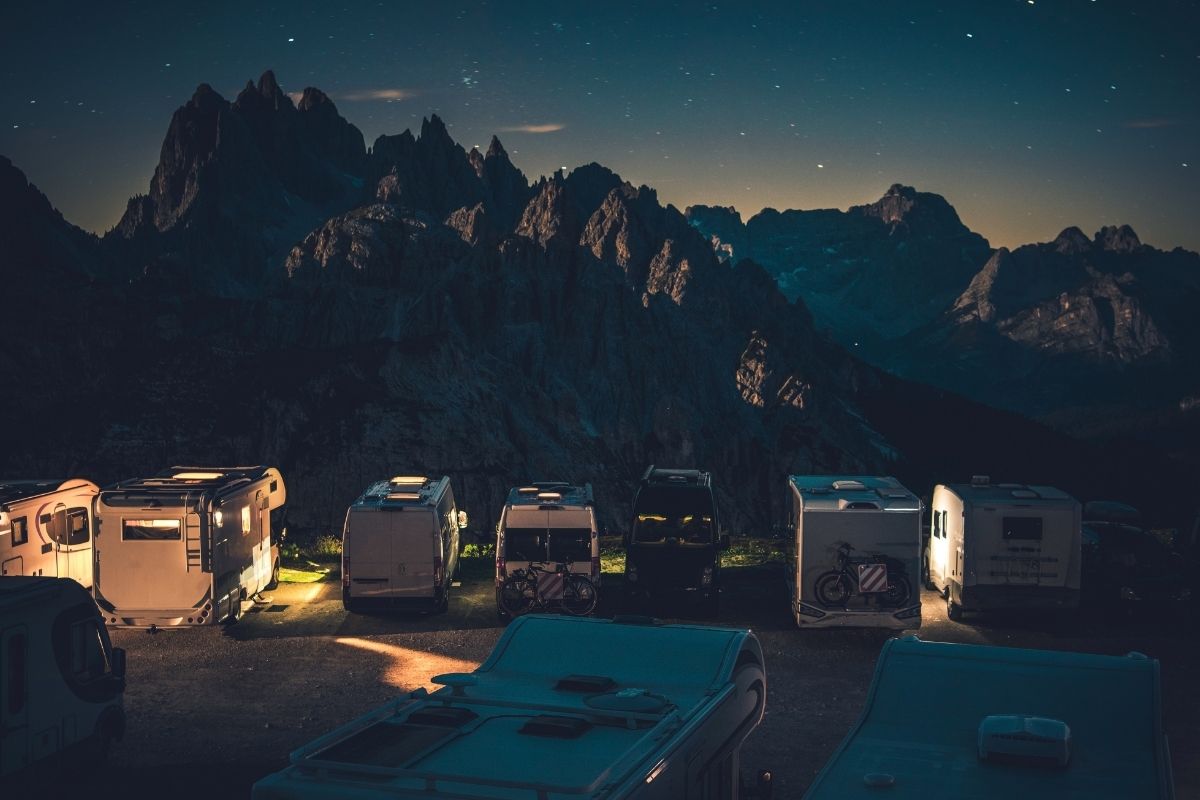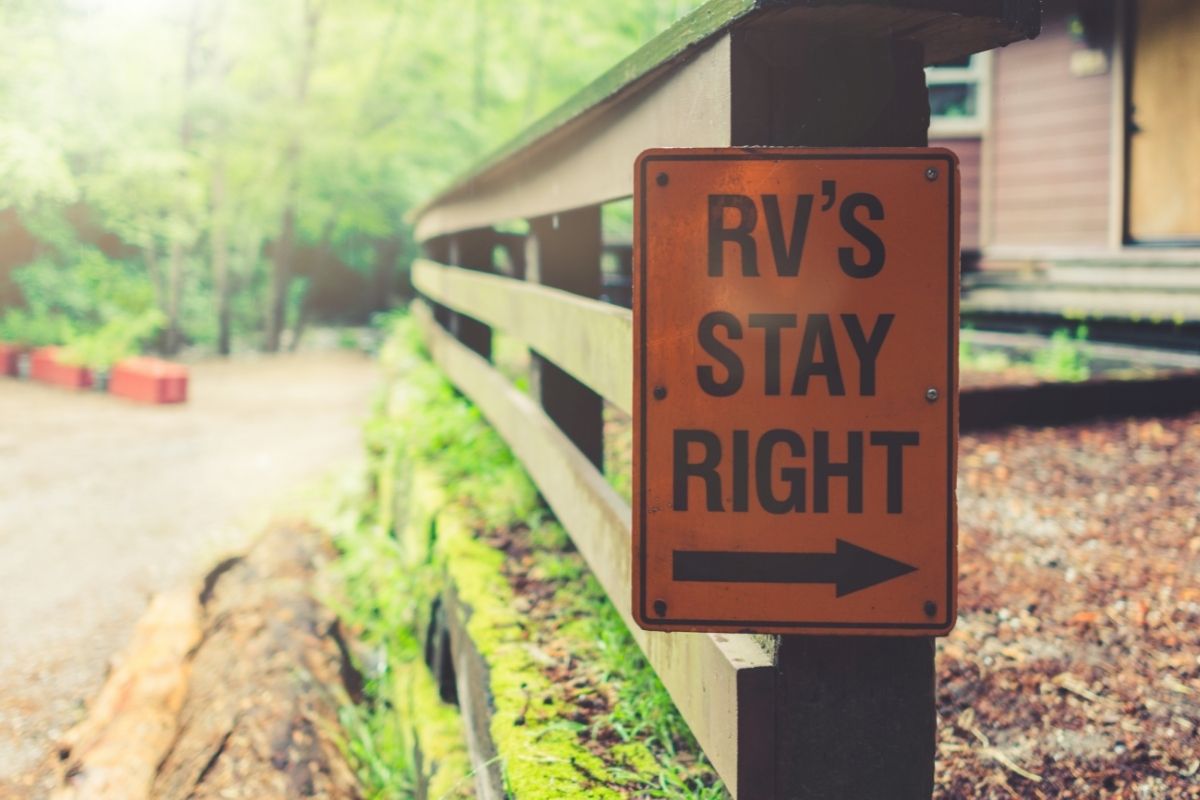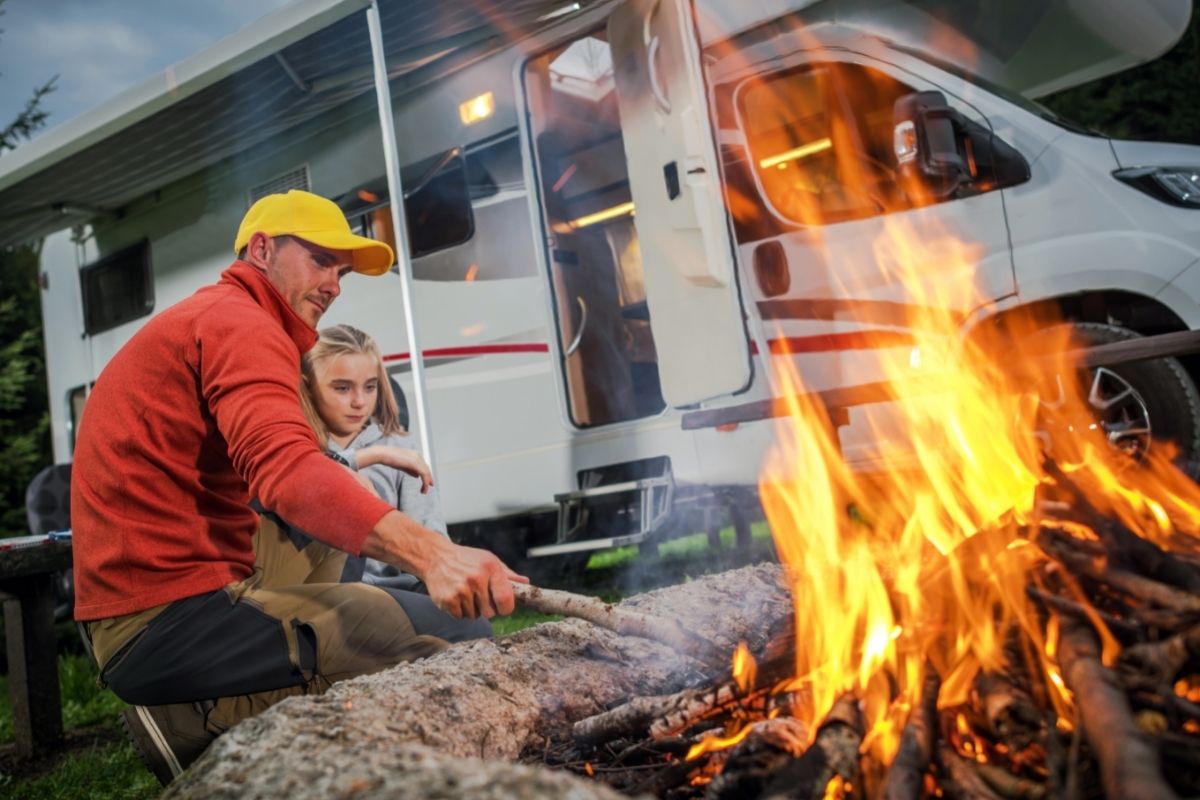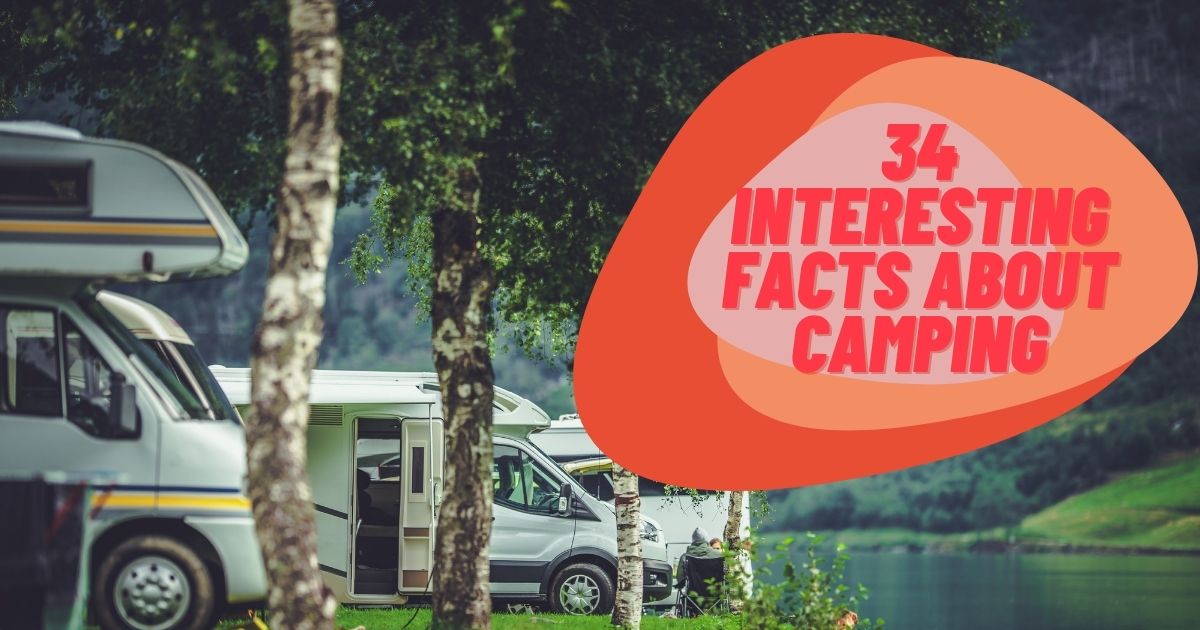How Many Campgrounds are There in the US?
Do you love camping? If your answer is yes, you need to know the facts about camping. How many campgrounds in the US do you know? In the United States, there are about 13,000 privately owned RV parks and 1,600 state parks that cater to RVers.
Many RV parks charge a daily, weekly, or monthly price for access to their Wi-Fi hotspots; in some cases, Wi-Fi charges are in the campground fee.

Why Do People Camp?
As we all know, camping is fun and allows us to connect with our loved ones and the natural world. But that’s only the beginning. Did you know that spending a night under the stars has health benefits?
These advantages, which range from favorable effects on physical and mental health to those specifically best for children, ensure even more reasons to camp. Here are six compelling reasons why camping is beneficial to one’s health.
So, what is it that draws individuals to go camping? Many people look forward to camping to get away from their hectic life and reconnect with the natural world. People take their first trip because they have a strong desire to be in the great outdoors, making it the most popular reason for taking a vacation.
This excursion offers something for everyone, whether it’s glamping with all the frills or sleeping under the stars. Let us explore the many reasons why people camp.
Camping Aids Problem-Solving
Camping and its activities might sometimes present you with difficulties, some of which not even Google can consistently solve! These are frequently issues you do not encounter daily: Pitching a tent or dealing with situations where you don’t have access to modern conveniences or are unfamiliar with your surroundings.
Furthermore, the camping industry often introduces you to new experiences, such as an activity you would like to try but never have the opportunity to. Whatever the situation may be, there is a growing body of evidence that addressing new challenges and experiences might help maintain our brain’s health by forcing us to think for ourselves.
Even better, they can boost self-esteem, progress, and enjoyment. Camping can open our minds to new possibilities.
Camping is Beneficial to The Education of Youngsters
Camping can have an excellent direct impact on children’s development. This is especially true in the age of smartphones, tablets, and other forms of technology. Many children are more at ease exploring an iPad in search of Bluey or Peppa Pig videos or watching YouTube than they are traversing the inside of a tent.
On the other hand, camping introduces youngsters to a whole new universe and requires them to confront new problems and challenges. Exposure to various obstacles maintains children’s brains healthy and leads to more learning possibilities.
According to a UK survey conducted by the Institute of Education at Plymouth University, most parents agree that camping positively impacts a child’s education. This societal discourse also agrees that camping is beneficial to children’s development.
Camping Can Assist You in Getting a Better Night’s Sleep
According to research from the University of Colorado Boulder, camping can reset our biological clocks and aid those who have trouble sleeping or waking up in the morning. In summary, it’s a byproduct of our more significant usage of artificial light in our daily lives. If we get the opportunity, camping can help us acclimatize to the natural light-dark cycle.
They need to get enough sleep has long emphasized our overall health and well-being. Isn’t it true that we’re all better company when we’re not weary and grumpy? Camping can help with sleep and, as a result, mood.
Camping Boosts Your Vitamin D Levels
There are no assurances about this; some people believe that simply saying “let’s go camping” will cause a downpour. However, camping frequently entails a longer time in the sun. And more of those rays equals more vitamin D, which offers health benefits.
While there is a lot of evidence that says some advantages are still inconclusive, there appears to be a consensus that it helps with bone health. Furthermore, according to the Medical Journal of Australia, sunshine exposure is the primary source of vitamin D for Australians.
Many also link sun exposure to mental health advantages like better moods. However, there is one caveat: to reduce the risk of skin cancer. You should limit direct sun exposure and utilize proper protection. Camping is a great way to get some extra sun.
Camping Can Lead to Increased Physical Activity
If you spend a lot of time sitting during the day, you will limit your exercise options. What is the solution? Go on a camping trip. You will most likely discover new surroundings while camping, such as wandering through a neighboring national park, cycling, or kayaking.
Alternatively, when staying at a BIG4 park, you can use the numerous onsite leisure facilities available.
From the Heart Foundation to the Department of Health, increasing exercise provides numerous physical and mental advantages. Combating health issues and disease and enhancing your mood and energy levels are among them.
This isn’t just applicable to camping. Get on the road and get away from your everyday grind or habit. Exploration and exercise are advisable when camping.
Camping is a great way to get some exercise. You pitch your tent, gather firewood, and begin hiking. We often lead sedentary lifestyles at home, not promoting physical fitness. When camping, you can’t help but get your heart rate up through physical exercise.
Camping Makes You Feel Better
That’s right, going camping can help you feel better. It all has to do with serotonin, an outstanding chemical our bodies produce. It aids in our happiness. More sunlight, more oxygen, and higher physical activity are all elements that help the body’s production of serotonin. And you’re likely to check all of these boxes while camping. It’s a good day!
Reduce your stress by leaving your overbooked schedule at home. There’s no need to be somewhere at a specific time when you’re camping, and nothing will distract you or compete for your attention. This environment naturally results in stress reduction and relaxation that you won’t find anyplace else.
Camping Helps You Get Fresh Air
You may be unaware of how little fresh air is in your daily life. When you go camping, you surround yourself with the beautiful scents of nature and the aroma of dinner cooking over an open fire.
One of the most admirable and most significant parts of camping is how it aids in developing and strengthening connections. When you go camping with friends or family, you can converse and visit, even late.
Lack of Alarm Clocks
When was the last time you slept late and had no way of waking up? The sun and the chirping of birds are your sole alarm clocks when you’re camping. The sensation of waking up with nature rather than an alarm clock is one that everyone should regularly have.
Camping is a terrific opportunity for everyone to unplug and disconnect from their screens. There are no computers, tablets, or televisions in the big outdoors, and there is so much else to do that does not require electronics.
Outstanding Cuisine
When food gets made outside, it simply tastes better. There’s something about making food over a campfire, on a campground grill, or in a Deluxe Cabin kitchen that you can’t have at home. S’mores that you cook over an open fire are also unbeatable. Dream big and create a fantastic dinner before you venture out on your next camping vacation.
Camping allows you to reconnect with nature, witness the wildlife, and gaze at the sky away from the city’s bright lights. It’s unlike anything else. When you’re exploring the many advantages of camping, make sure you and your family have the opportunity to interact with nature.
New Skill Development
While camping, you can’t help but gain new skills. Everyone on the trip will participate, and it will be an excellent opportunity to learn new skills. You might learn how to pitch a tent, tie knots, build a fire, prepare a fresh meal, and do other crafts.
These are valuable talents to have, but we don’t often have the opportunity to practice them due to our hectic schedules. When camping with children, be courteous. While camping for adults applies to young people, a few advantages are unique to younger campers.
Educational Opportunities
One of the reasons scouting programs are so beneficial is that time spent camping is time spent learning for kids. They organize camping trips that focus on teaching youngsters new skills such as fishing, cooking, trekking, tying knots, lighting a fire, safety, and first aid, among other things.
Confidence Development
Children must gradually become more self-reliant and confident in their talents. One of the advantages of camping for kids is that it teaches them independence in a secure and controlled setting. As they discover new things and have first-hand experiences, children gain confidence.
Camping benefits children and their families by strengthening links between family members – siblings and sisters, parents and children, etc. You’ll all feel better as a group when you go home.

50 Interesting Facts About Camping
Camping has become popular over time, with the most recent numbers from 2018 revealing that 1.4 million households camped for the first time. In 2016, 40.5 million Americans, most of them being over the age of 6, participated in camping, according to camping statistics. This is an increase of 500,000 campers from 2015.
Campers register 587.2 million camping days, averaging 14.5 days per individual. Since 2014, the number of campers who camp three or more times a year has increased, illustrating the growing popularity of camping.
Camping has become extremely popular among the younger generation, but it is still prevalent among Generation Xers and Baby Boomers.
So, what motivates people to go camping? Many individuals view camp as a way to disconnect from their hectic life and reconnect with nature. The number one reason individuals enjoy it is their passion for the outdoors, which accounts for many people who take their first trip.
This type of travel accommodates everyone, from glamping with luxury to sleeping under the stars. The following are some of the most exciting camping facts you may come across;
- The first official recipe for S’mores was in the Girl Scouts manual in 1927, and over 42 million Americans, or 14% of the population, go camping each year.
- Millennials go camping in more significant numbers than any other generation. As motivations for camping, they mention a love of outdoor activities, an appreciation of nature, a love of music festivals, and a passion for sharing images on social media.
- On Vancouver Island, Canada, the Clayoquot Wilderness Resort is the most expensive camping place globally. A single night will set you back $3,900.
- There isn’t a single agreed-upon definition of camping. On the other hand, camping epitomizes the concept of getting away from it all and embracing the great outdoors.
- The majority of campers in the United States are Caucasian guys, with an average age of 35.
- Camping in the United States’ Mountain Region (from Montana to Arizona and New Mexico) is slightly more popular than in other sections of the country.
- Campers in the United States travel on an average of 3.8 excursions every year, lasting an average of 2.7 nights. They drove to their destinations and camped near their vehicles.
- State park campgrounds are a favorite for around 42% of campers in the United States.
- A “cramper” is the smallest camper in the world. It is pedal-powered and offers a living space of 4 feet (1 meter).
- On their first camping vacation, campers spend an average of $128.26.
- In the United States, over 68% of adult campers are in a marriage or live with a partner, implying that camping is a family activity.
- Tents are the most common type of shelter that campers use.
- RV campers spend 3.7 nights on average, whereas tent campers spend 2.5 nights.
- Bedouin tents are traditionally composed of black goat hair. The Bedouin word for tent is buryuut hajar, which translates to “hair home.”
- Going camping is one of the most efficient ways to reset a person’s natural clock.
- Tents were a basic survival necessity before they were essential for entertainment. The earliest evidence of tent construction dates back to 40,000 B.C.
- A flashlight is the most common camping accessory.
- The Bible has one of the first documented mentions of a tent. For example, in Genesis 4:20, for instance, Jabal is described as “the first to live in tents.”
- The United States Department of Defense is one of the most significant users of tents globally.
- Though “camping” is commonly associated with Burmese refugee camps in Thailand, Thais in Northern Thailand typically camp for enjoyment.
- Tents are more than just a camping shelter. They’re also a protest, representing a reclaiming of territory and ideas.
- The following are the top five most dangerous college campuses in the United States: Lake Mead National Recreation Area, Death Valley, Glacier National Park, Organ Pipe Cactus National Monument, and Great Smoky National Park is among the places to visit.
- Author, preacher, and sportsman William H. H. Murray is primarily the father of the contemporary outdoor movement. He wrote Adventures in the Wilderness, or Camp Life in the Adirondacks, a seminal book on camping that made it accessible to the general public for the first time.
- Germans enjoy camping. They usually bring family, extended family, and a pack of UNO cards when they go camping. Their favorite camping destinations are France and Italy.
- The Dutch love to camp and are notorious for their weekend and holiday caravan traffic congestion. They, like the Germans, overpack and believe licorice, cheese, and peanut butter to be necessities.
- People who are married are more likely to have sex when camping than at home.
- Although Mongolians camp for survival rather than leisure, they are proud of their nomadic culture and pitch their ger or tent. You can find an altar with family photos and Buddha statues in their tents.
- Mount Cook National Park in New Zealand, Devon in England, Loch Lomond and the Trossachs in Scotland, the Alps in France, and Hossa National Park in Finland are the top five most popular areas to camp in the world.
- 120–140 individuals die at national parks across the United States each year. Considering that over 280 million people visit the parks yearly, dying is about one in two million.
- Drowning, car accidents, falling, suicide, and others are the most common causes of death when camping in national parks.
- A Confederate States Army officer, Henry Hopkins Sibley, came up with the first modern tent in 1855. He based his “bell tent” on Native American tents, but instead of buffalo hides, he used canvas.
- Wildlife attacking and killing you while camping in a national park is one of the rarest ways to die. In 2010, however, an enraged mountain goat was killed—one unfortunate individual.
- Men are more likely than women to die when camping. Men account for roughly 75% of all deaths in national parks in the United States.
- In the United States, foreign drivers who are not used to driving on the right side of the road are among the most prevalent causes of car accidents in popular national parks and camping sites.

That’s a Wrap!
Camping is a recreational activity where participants camp outdoors for a while, usually in tents or specifically constructed or adapted vehicles. Canoe camping, auto camping, RVing, and backpacking, including ultralight backpacking, are examples of several styles of camping that get their names from their mode of transportation.
Camping can have a range of connotations for different types of campers. 50% of younger campers started it at a young age and, as a result, consider it to be a tradition that they wish to continue. As a result, 96% of campers say they love spending time with their families and friends while on vacation.
It also provides people with the opportunity to learn about nature, natural camping, improve their health, build life skills, and get away from the strains of everyday life. Many campers discover that they are healthier due to the benefits that camping delivers in the great outdoors.
Almost everyone has had the opportunity to go camping at some point in their lives. Those who haven’t already will most likely do so during the same year they read this article. I’m not saying it to tease you! According to summer camp statistics, the number of individuals who go camping increases practically every year.
Many people worldwide love camping and spend a lot of money every year. For camping to be a great success, you need to have all your camping facts and trivia right.
